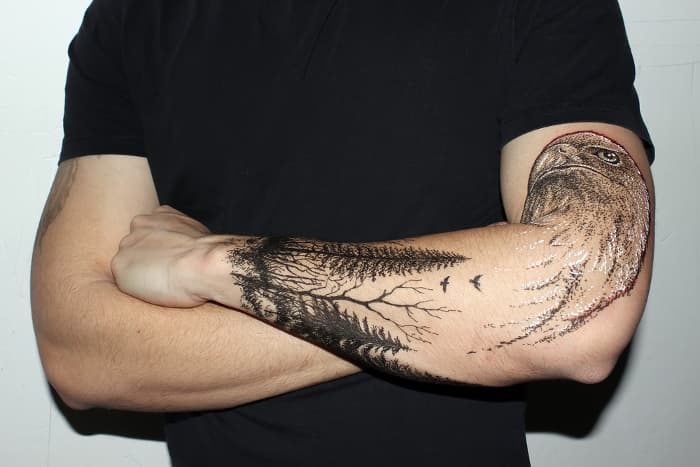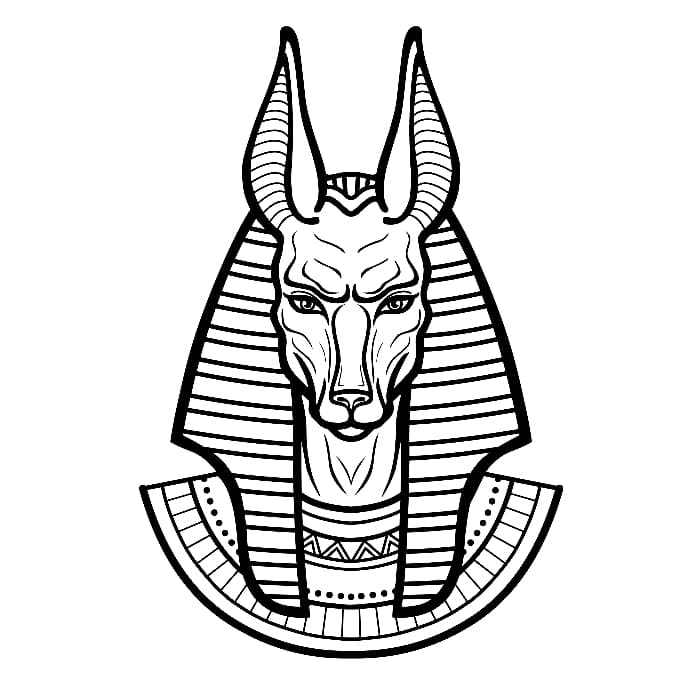Skull tattoos have long been a popular choice for individuals seeking a powerful and bold symbol to ink on their skin. Often associated with death and darkness, skull tattoos hold deeper meanings that extend beyond this simplistic interpretation. In fact, the symbolism and significance of skull tattoos can span a wide range of emotions and ideals, from power and strength to overcoming challenges and protecting oneself from harm.

Within various cultures throughout history, skulls have taken on a diverse array of meanings and associations, and as such, have been widely incorporated into tattoo art. Depending on the style and design, skull tattoos can convey a multitude of messages, encouraging us to live life to the fullest and reminding us of our own mortality. By delving into the cultural and historical context of skull tattoo meanings, we gain a better understanding of how to tailor their design to convey our own unique messages.
Key Takeaways
- Skull tattoos embody a range of meanings, from power and strength to overcoming obstacles.
- Cultural and historical contexts shape the diverse interpretations of skull symbols in tattoo art.
- Design variations and additional elements can customize the meaning of skull tattoos for individuals.
Skull Tattoo Symbolism
Death and Life
Skull tattoos often represent the concept of death and life, symbolizing the inevitable end of life and the cycle of life. In Christianity, skull tattoos can symbolize eternity, as the soul moves on and leaves behind human remains. In Kabbalah teachings, the skull represents rebirth, a cause for celebration rather than sorrow.
Power and Strength
A skull tattoo can also convey a message of power and strength. It may indicate that the person wearing the tattoo has overcome difficult circumstances or faced adversity with courage. By embracing the skull, individuals can showcase their inner resolve and ability to confront the challenges life throws at them.
Rebellion and Freedom
Skull tattoos have been associated with notions of rebellion and freedom. The imagery of a skull can signify a rejection of societal norms or a desire to break away from constraints. By opting for a skull tattoo, people may be expressing their individualism and desire for personal autonomy.
Duality and Balance
The skull tattoo symbolizes the profound duality and balance between life and death. It serves as a reminder of the intricate interplay between these two powerful forces, which govern our existence. By incorporating a skull tattoo in their body art, individuals can acknowledge this balance and embrace the coexistence of opposites within their lives.
Cultural and Historical Context
Day of The Dead
The Day of the Dead, a Mexican festival celebrated on November 1st and 2nd, honors deceased loved ones. It’s in this context that sugar skull tattoos have gained significant cultural importance. The sugar skull, with its vibrant colors and intricate patterns, is a common symbol in this celebration. Each tattoo represents the soul of a departed person, and it serves as a tribute to their memory while also symbolizing the cycle of life and death.
Religious and Spiritual Significance
Skull tattoos have long held religious and spiritual connotations. In Christianity, the skull is often associated with Golgotha, the site where Jesus was crucified. This connection has also contributed to the popularity of skull and crossbone tattoos, which symbolize the triumph of life over death. Additionally, skulls in religious settings serve as a reminder of human mortality and the need for spiritual growth and redemption.
Pirate Imagery
Pirate imagery, particularly the skull and crossbones, has left its mark on tattoo culture. Historically, pirates flew the skull and crossbones flag to instill fear in their enemies and intimidate victims. Today, skull and crossbones tattoos retain their association with danger, defiance, and rebellion. They’re often seen as a symbol of fierce independence and the willingness to go against the grain.
Biker Culture
Biker culture has also played a significant role in shaping the meaning of skull tattoos. For many bikers, the skull symbolizes freedom, fearlessness, and resilience. Biker-inspired skull tattoos can include elements like wings, flames, and motorcycle parts to signify their passion for riding and the open road. The skull also serves as a reminder to live life to the fullest and cherish every moment, given the inherent risks of motorcycling.
Popular Skull Tattoo Designs
Sugar Skull Tattoos
Sugar skull tattoos are inspired by the Mexican tradition of Dia de los Muertos (Day of the Dead), where sugar skulls are used as decorations to celebrate loved ones who have passed away. These tattoos often feature vibrant colors, intricate patterns, and florals, making them a popular choice for those who want a unique and visually striking piece. The meaning behind sugar skull tattoos is a celebration of life, honoring the deceased, and embracing both life and death.
Skull and Rose Tattoos
Another popular tattoo design is the combination of skulls and roses. This design represents the contrast between life and death or beauty and decay. A skull and rose tattoo can symbolize the delicate balance between these two forces, while also acknowledging the cycle of life and the inevitability of death. These tattoos can be done in various styles and sizes, ranging from small and simple designs to large, intricate pieces.
Grim Reaper Tattoos
Grim Reaper tattoos feature the iconic figure of Death, often depicted wearing a hooded cloak and carrying a scythe. This tattoo design is a powerful reminder of mortality and the transient nature of life. As such, it can symbolize bravery, inner strength, and the acceptance of one’s own mortality. The grim reaper tattoo can be designed in various styles, including traditional, realistic, and even cartoon-like interpretations.
Skull Sleeve Tattoos
For those looking for a larger, more elaborate skull tattoo, a skull sleeve can be an excellent choice. These designs typically cover the entire arm, featuring multiple skulls and other imagery that complement the theme, such as roses, clocks, or other symbols of time and mortality. Skull sleeve tattoos can be done in a variety of styles, from realistic and detailed to more abstract and artistic interpretations. The meanings associated with these tattoos can vary, but they often focus on themes like power, death, and rebellion, among others.
Incorporating Additional Elements
Flowers and Nature
Incorporating flowers and nature into skull tattoos can bring additional depth and meaning to the design. The combination of skulls with flowers often symbolizes rebirth, change, and the cycle of life. For example, a flaming skull tattoo can represent transformation and renewal. Similarly, integrating feathers with a skull tattoo can add an element of spirituality or signify the journey of a soul.
Historical and Literary References
Skull tattoos can also be combined with references from history or literature to convey a more profound message. One famous example is the skull from Shakespeare’s play, “Hamlet.” In this context, a tattoo of Hamlet’s skull might symbolize contemplating the nature of life and death, as well as the idea of mortality. In addition to Hamlet, Kabbalah symbols can also be incorporated into skull tattoos to express a deeper connection with spirituality or mysticism.
Celebrities with Skull Tattoos
Many celebrities have chosen to get skull tattoos, often incorporating additional design elements that hold personal significance. Rihanna, for instance, has a skull tattoo that represents being fearless and strong. By reviewing the skull tattoos of various celebrities, you can find inspiration and identify meaningful design components to include in your own skull tattoo. This not only pays homage to your favorite icons but also allows you to express your own journey and life experiences.
Variations in Meaning
Skull Tattoos as Memento Mori
The term Memento Mori comes from Latin and translates to “remember you must die.” Skull tattoos can represent the inevitability of death and the passage of time. By recognizing our own mortality, we can come to a greater appreciation for our lives and the experiences we have. As a result, skull tattoos can be seen as a celebration of life, reminding us to make the most of our time on earth.
Protection and Courage
In some cultures, skull tattoos are believed to have protective properties or symbolize courage. The strength and fearlessness associated with skulls can be an empowering image for the wearer, displaying a fearless attitude in the face of adversity. This connection to protection and courage may also stem from traditions associated with warriors and battle, where skull imagery was often employed.
Good and Evil
The duality of good and evil can be represented by skull tattoos as well. The skull may be seen as a symbol of moral consciousness, acknowledging the potential for both good and evil in each individual. These tattoos often incorporate additional design elements that contrast the dark skull imagery with more positive symbols such as flowers or butterflies. By combining these elements, the tattoo can represent one’s struggle to maintain balance in their life and the recognition that they possess both good and evil within.
Universal Theme
As a universal symbol, the skull transcends cultural and geographical barriers. The skull represents our shared human experiences and the cycle of life and death that we all must inevitably face. In this sense, skull tattoos can symbolize the commonality among all people, reminding us of our shared mortality and interconnectedness.



